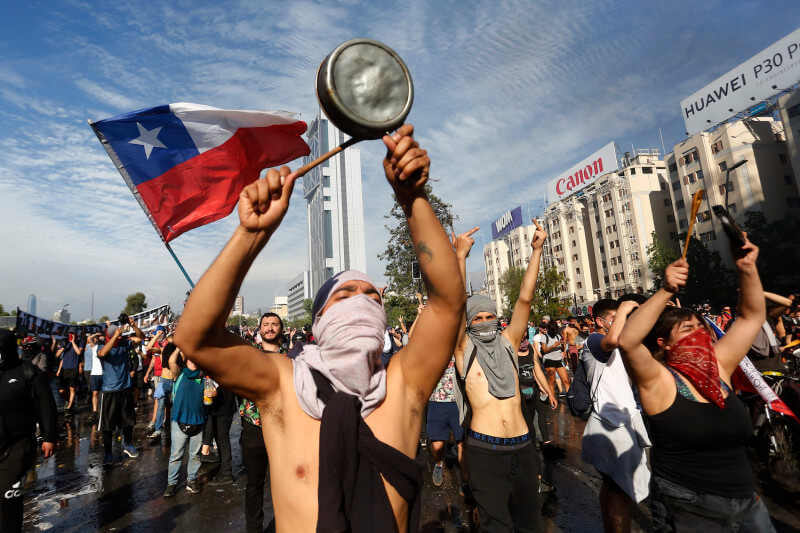Intense protests resumed in Chilean capital Santiago following the two-year anniversary of President Sebastian Piñera's second-term in office.
On Wednesday, Piñera held a ceremony to mark 30 years of democracy in Chile on a day that was marked by students continuing to call for him to step down. Opposition leaders did not attend the event, saying it was inappropriate, arguing that police brutality in response to protests undermines Chile’s democratic principles.
Chile's attorney general's office is currently investigating human rights abuses by security forces, with Chile's Human Rights Institute saying that it has recorded 445 eye injuries during the protests. This violent approach by policemen was also on display this past weekend during the International Women’s Day march in Santiago, which amassed a crowd of nearly 125,000 people.
Protests began in October 2019 over a fee-hike on subway tickets. It has since morphed into a larger anti-establishment movement that has left 31 dead and at least 30,000 injured.
The protests have left Chile’s economy reeling, with unemployment rising by 5% from 2018 levels. Public transportation and infrastructure has been destroyed and many businesses have been forced to close their shops. The tourism sector, too, has been hard-hit. Owing to the unrelenting protests, Chile’s central bank predicted low growth for the year.
Elections in Chile are scheduled for April 26. Protesters are demanding a constitutional assembly to replace the dictatorship-era constitution currently in place. According to recent polls, around 70% of voters want a new constitution.
Image Source: Foreign Policy
Chilean Protesters Continue Calls For President Sebastian Piñera's Resignation
March 13, 2020

